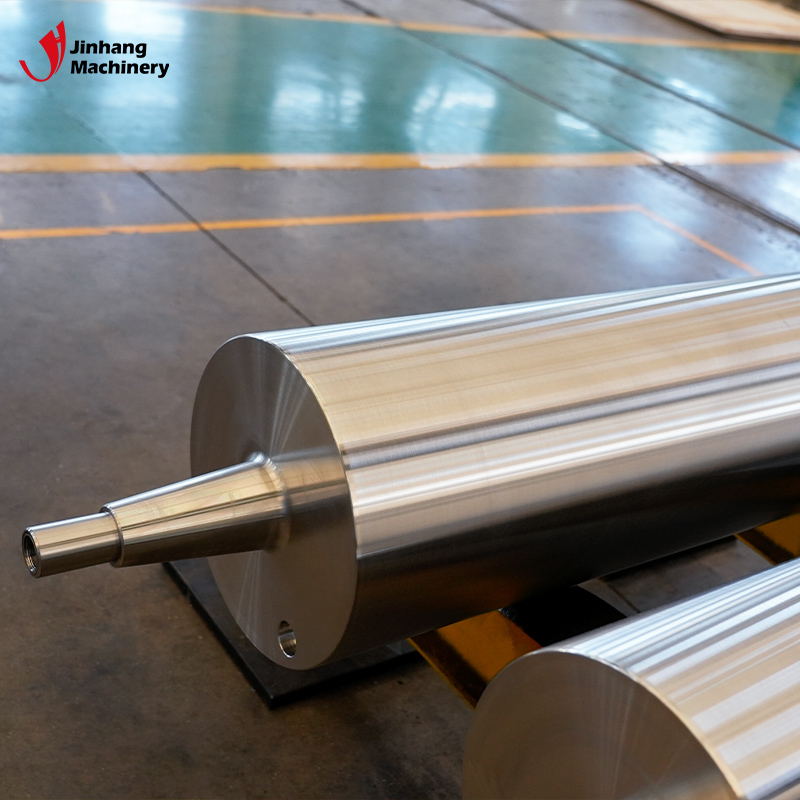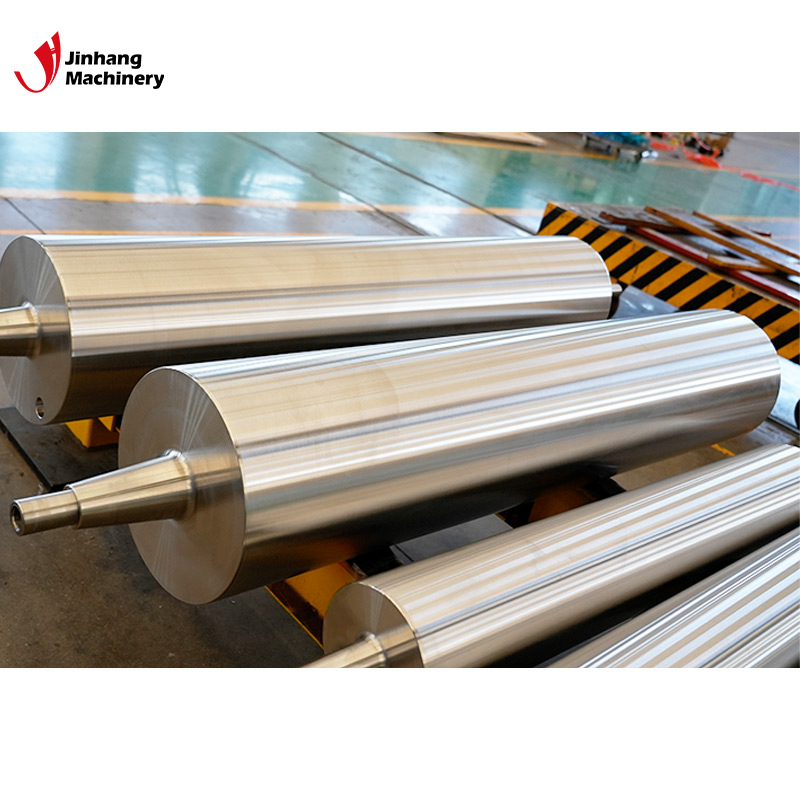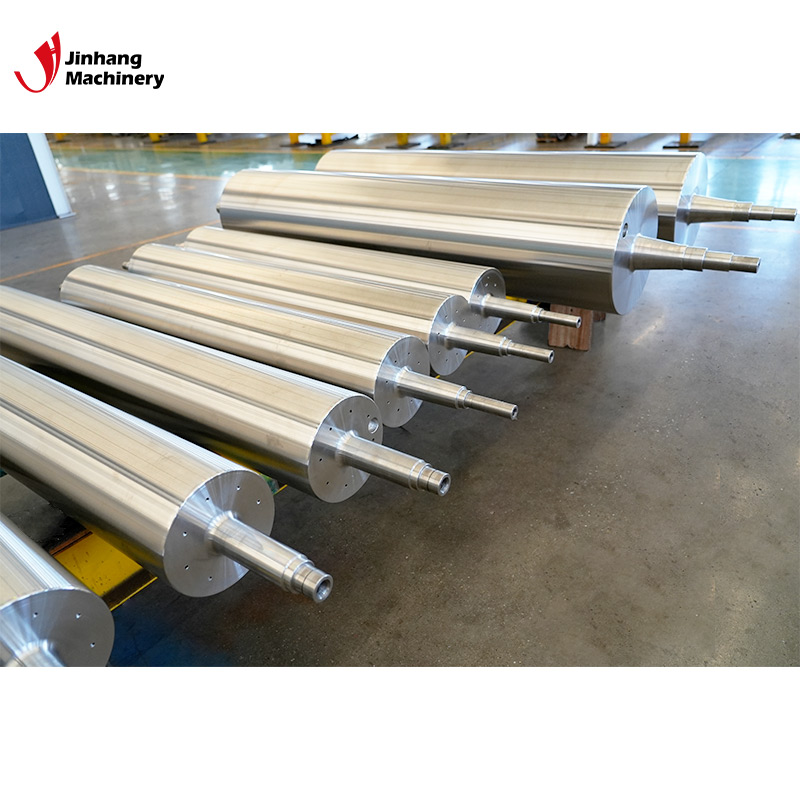Why does the plastic film industry need to use Corona Roller?
In the plastic film industry, Corona Roller is a key equipment widely used in the production and processing of plastic films. Corona Roller changes the surface properties of plastic films through corona treatment technology to improve their printing, coating and bonding properties.
This article will explore in depth why the plastic film industry needs to use Corona Roller and the specific role of Corona Roller.

What is Corona Roller?
Corona Roller is a device that performs surface treatment on plastic film through corona discharge (CoronaDischarge). Corona discharge is an ionization phenomenon formed by high-frequency, high-voltage current in the air. Through this ionization, the molecular structure of the surface of the plastic film changes, thereby improving its surface energy and adhesion.
Why does the plastic film industry need to use Corona Roller?
The plastic film industry involves a wide range of applications, including packaging, printing, labeling, agricultural film and industrial film. In these applications, the surface properties of plastic film are crucial and directly affect the quality and use effect of the product. The surface of plastic film usually has low surface energy, which makes it difficult to print, coat and bond. The use of Corona Roller can effectively solve this problem and improve the surface properties of plastic film.

What is the role of Corona Roller in the plastic film industry?
The role of Corona Roller in the plastic film industry: improve the surface energy of plastic film, enhance adhesion, improve printability, and improve protective properties (such as waterproof, oil-proof, and dust-proof).
Improve the surface energy of plastic film:
The main function of corona treatment is to improve the surface energy of plastic film. The low surface energy of plastic film makes its surface smooth and inactive, which is not conducive to the adhesion of ink, coating and adhesive. Through corona treatment, the surface energy of plastic film increases, the molecular structure changes, and its surface becomes rougher and more active, which improves the adhesion to ink, coating and adhesive.
● Improved printing performance: During the printing process, the ink needs to be evenly attached to the surface of the plastic film. The surface energy of the plastic film after corona treatment is significantly improved, the ink can adhere and diffuse better, and the printing effect is clearer and more stable.
● Improved coating performance: For plastic films that need to be coated with a protective layer or a functional layer, corona treatment can ensure that the coating is evenly covered, has strong adhesion, and is not easy to fall off.
● Improved adhesion performance: In applications that require bonding processes, the surface of the plastic film after corona treatment is more active, which can provide stronger adhesion and ensure the overall performance of the product.
Enhanced adhesion:
The low surface energy of plastic film makes it perform poorly in the process of adhesion with other materials. Through corona treatment, the chemical bonds on the surface of the plastic film are destroyed, and more free radicals are generated. These free radicals can form stronger chemical bonds with molecules in inks, coatings and adhesives, thereby enhancing adhesion.
● Packaging application: In packaging applications, plastic film needs to be compounded with other materials (such as paper, aluminum foil, etc.). Corona treatment can ensure the adhesion between the composite materials and improve the quality and reliability of packaging.
● Label application: In label production, the label paper needs to be firmly adhered to the surface of the plastic film. Corona treatment can provide stronger adhesion to ensure the stability and durability of the label.
Improved printability:
The surface smoothness and chemical inertness of plastic film make it challenging in the printing process. Corona treatment can improve the printability of plastic film by changing its surface morphology and chemical properties.
● Increased surface roughness: Corona treatment produces tiny concave and convex structures on the surface of plastic film through ionization, which increases the surface roughness, provides more attachment points, and improves the adhesion of ink.
● Changes in surface chemical properties: The free radicals generated during corona treatment can combine with oxygen molecules in the air to form polar groups such as hydroxyl and carbonyl. These polar groups can form stronger interactions with polar molecules in inks, coatings and adhesives, improving printability.
Improved protective performance:
Corona treatment can not only improve the printing and adhesion properties of plastic films, but also improve their protective performance. In some specific applications, plastic films need to have certain protective properties, such as waterproof, oil-proof, and dust-proof. Corona treatment can improve its protective performance by changing the surface properties of plastic films.
● Waterproof performance: Corona treatment can increase the polar groups on the surface of plastic films. These polar groups can form a waterproof layer to improve the waterproof performance of plastic films.
● Oil-proof performance: The surface of the plastic film after corona treatment can form an oil-proof layer to prevent grease penetration and improve oil-proof performance.
● Dustproof performance: The surface of the plastic film after corona treatment can reduce static electricity accumulation, prevent dust adhesion, and improve dustproof performance.

Practical application case analysis
In order to better understand the role of Corona Roller in the plastic film industry, we can analyze its application effect in detail through some practical cases.
Case 1: Improvement of printing process of a packaging material company
In the printing process of plastic film of a packaging material company, traditional methods are difficult to ensure uniform adhesion of ink, resulting in poor printing quality. By introducing Corona Roller for surface treatment, the company's printing process has been significantly improved.
● Improved printing quality: The surface energy of the plastic film after corona treatment is significantly improved, the ink can be evenly adhered, the printed image is clearer, and the color consistency is greatly improved.
● Improved production efficiency: The corona treatment process is simple and fast, which can significantly improve the printing quality without affecting the production speed, and improve the production efficiency.
Case 2: Optimization of bonding process of a label manufacturer
When a label manufacturer makes labels, traditional methods cannot ensure the firm adhesion of label paper and plastic film, resulting in easy detachment of labels. By using Corona Roller for surface treatment, the company's bonding process has been optimized.
● Enhanced adhesion: The surface of the plastic film after corona treatment is more active and can provide stronger adhesion, ensuring the firm adhesion of the label paper and the plastic film, improving the stability and durability of the product.
● Reduced scrap rate: The enhanced adhesion significantly reduces the scrap rate caused by label shedding, improving the overall efficiency of the production line and product quality.
